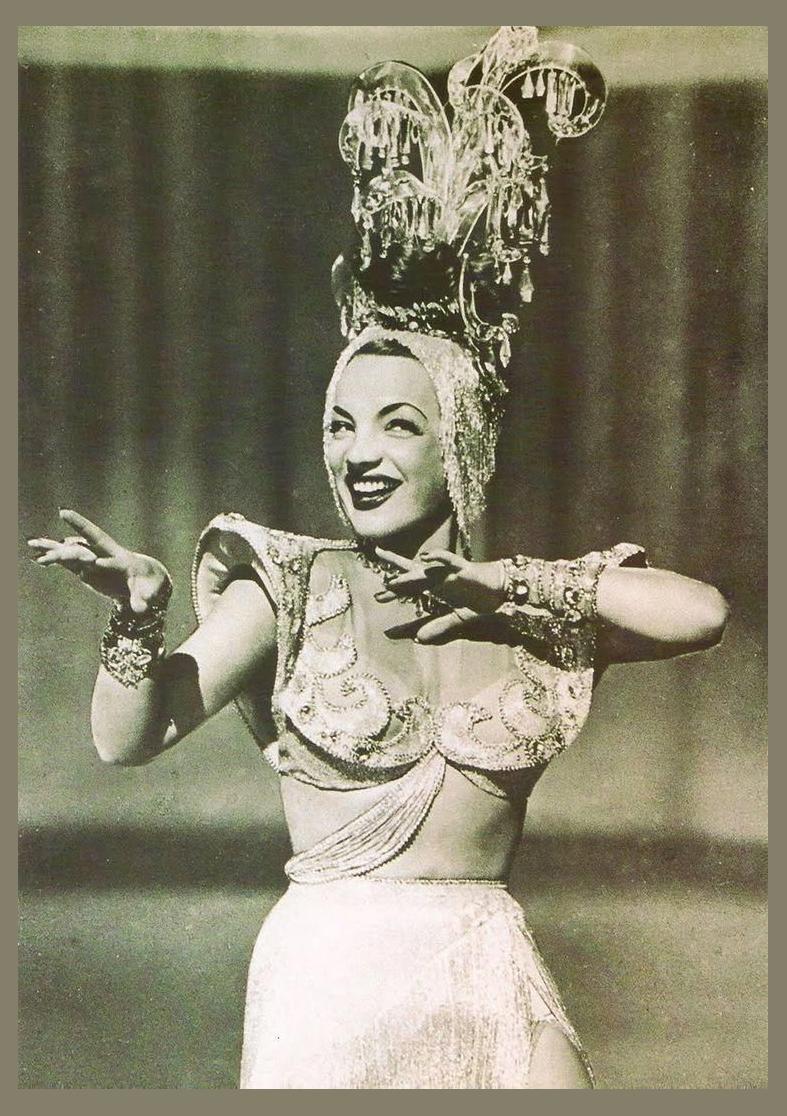 Carmen Miranda
Carmen Miranda
Carmen Miranda and the Allure of Tico-Tico No Fubá
In the annals of Latin music, the name Carmen Miranda shines brightly. Her infectious rhythms and flamboyant costumes captivated audiences worldwide, making her an icon of the 20th century. One of her most enduring hits, "Tico-Tico No Fubá," remains a timeless classic.
Early Life and Career:
Born in Portugal in 1909, Maria do Carmo Miranda da Cunha embarked on her musical journey at a young age. In the 1930s, she became a star in Brazil with her lively samba performances. Her unique blend of traditional and modern styles gained her immense popularity.
International Success and Controversies:
In 1939, Miranda made her Hollywood debut, and her career soared to new heights. Her exotic persona and charismatic stage presence made her a global sensation. However, her over-the-top costumes and exaggerated accent drew criticism from some who accused her of perpetuating stereotypes.
The Birth of "Tico-Tico No Fubá":
In 1944, Miranda recorded "Tico-Tico No Fubá," a playful song about a bird that became a worldwide hit. The melody, composed by Zequinha de Abreu, was infectious, and Miranda's joyful delivery added to its charm. The song's popularity cemented her status as a musical icon.
Challenges and Triumphs:
Despite her success, Miranda faced challenges. Her demanding touring schedule took a toll on her health, and she struggled with financial issues. Yet, she persevered, continuing to entertain audiences with her vibrant performances.
Discography:
Carmen Miranda released numerous albums and singles throughout her career, including:
* "Bananas is My Business" (1944)
* "Copacabana" (1947)
* "Brazil" (1953)
* "Para Machucar Meu Coração" (1955)
Members:
Carmen Miranda's band included talented musicians who contributed to her unique sound:
* Laurindo Almeida (guitar)
* Dick Farney (piano)
* Nestor Amaral (bass)
* Buddy Childers (trumpet)
Legacy and Impact:
Carmen Miranda passed away in 1955, leaving behind a legacy of unforgettable music and artistry. Her vibrant style and joyful spirit continue to inspire and entertain audiences around the world. "Tico-Tico No Fubá" remains a timeless classic, a testament to her enduring impact on the world of Latin music.
In the annals of Latin music, the name Carmen Miranda shines brightly. Her infectious rhythms and flamboyant costumes captivated audiences worldwide, making her an icon of the 20th century. One of her most enduring hits, "Tico-Tico No Fubá," remains a timeless classic.
Early Life and Career:
Born in Portugal in 1909, Maria do Carmo Miranda da Cunha embarked on her musical journey at a young age. In the 1930s, she became a star in Brazil with her lively samba performances. Her unique blend of traditional and modern styles gained her immense popularity.
International Success and Controversies:
In 1939, Miranda made her Hollywood debut, and her career soared to new heights. Her exotic persona and charismatic stage presence made her a global sensation. However, her over-the-top costumes and exaggerated accent drew criticism from some who accused her of perpetuating stereotypes.
The Birth of "Tico-Tico No Fubá":
In 1944, Miranda recorded "Tico-Tico No Fubá," a playful song about a bird that became a worldwide hit. The melody, composed by Zequinha de Abreu, was infectious, and Miranda's joyful delivery added to its charm. The song's popularity cemented her status as a musical icon.
Challenges and Triumphs:
Despite her success, Miranda faced challenges. Her demanding touring schedule took a toll on her health, and she struggled with financial issues. Yet, she persevered, continuing to entertain audiences with her vibrant performances.
Discography:
Carmen Miranda released numerous albums and singles throughout her career, including:
* "Bananas is My Business" (1944)
* "Copacabana" (1947)
* "Brazil" (1953)
* "Para Machucar Meu Coração" (1955)
Members:
Carmen Miranda's band included talented musicians who contributed to her unique sound:
* Laurindo Almeida (guitar)
* Dick Farney (piano)
* Nestor Amaral (bass)
* Buddy Childers (trumpet)
Legacy and Impact:
Carmen Miranda passed away in 1955, leaving behind a legacy of unforgettable music and artistry. Her vibrant style and joyful spirit continue to inspire and entertain audiences around the world. "Tico-Tico No Fubá" remains a timeless classic, a testament to her enduring impact on the world of Latin music.